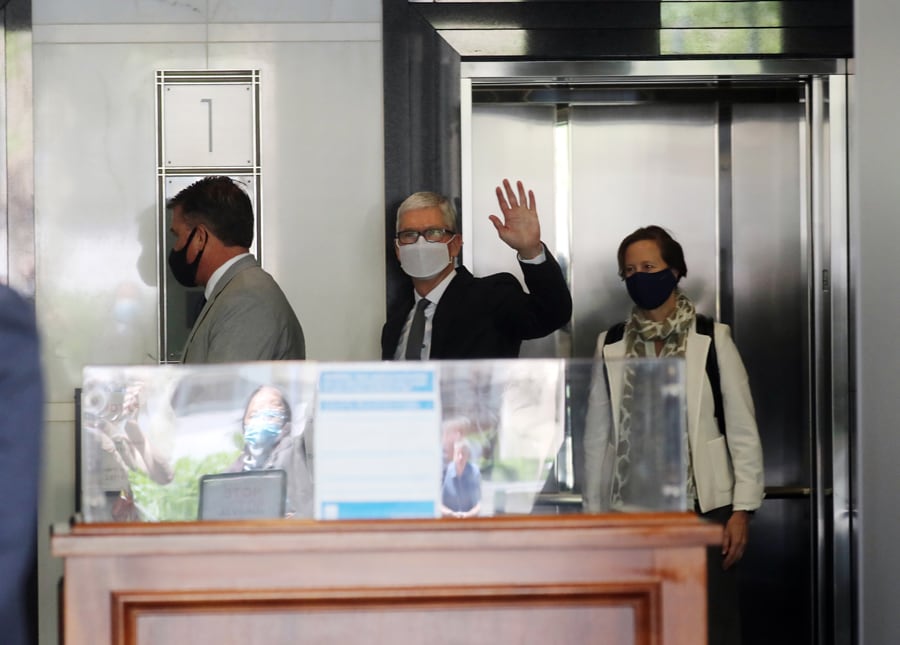
Apple's 'Fortnite' trial ends with pointed questions and a toast to Popeyes
For the past three weeks, Apple has defended itself in a federal courtroom in Oakland, California, against claims that it abused its power over the iPhone App Store, in one of the biggest antitrust trials in Silicon Valley's history
 Tim Cook, Apple’s chief executive, leaving the courthouse in Oakland, Calif., after testifying on Friday, May 21, 2021, in the antitrust case brought by Epic Games. A decision is now in the hands of a federal judge. (Jim Wilson/The New York Times)
Tim Cook, Apple’s chief executive, leaving the courthouse in Oakland, Calif., after testifying on Friday, May 21, 2021, in the antitrust case brought by Epic Games. A decision is now in the hands of a federal judge. (Jim Wilson/The New York Times)
Tim Cook took the stand for the first time as Apple’s CEO. The billionaire creator of one of the world’s most popular video games walked a federal judge through a tour of the so-called metaverse. And lawyers in masks debated whether an anthropomorphic banana without pants was appropriate to show in federal court.
For the past three weeks, Apple has defended itself in a federal courtroom in Oakland, California, against claims that it abused its power over the iPhone App Store, in one of the biggest antitrust trials in Silicon Valley’s history. Epic Games, the maker of the popular game “Fortnite,” sued Apple last year seeking to allow apps to avoid the 30% commission that the iPhone maker takes on many app sales.
On Monday, the trial — which covered esoteric definitions of markets as well as oddball video game characters — concluded with Judge Yvonne Gonzalez Rogers of the U.S. District Court for the Northern District of California pressing the companies on what should change in Apple’s business, if anything. The decision over the case, as well as the future of the $100 billion market for iPhone apps, now rests in her hands. Gonzalez Rogers has said she hopes to issue a verdict by mid-August.
Yet even in an era of antitrust scrutiny of the world’s biggest tech companies, the trial showed how difficult it was to take on a $2.1 trillion corporate titan like Apple.
To sue Apple, Epic spared little expense. The games maker, which is based in Cary, North Carolina, sacrificed a valuable product when Apple yanked the “Fortnite” iPhone app — which had generated more than $1 billion in sales — from the App Store. Epic also spent millions of dollars on lawyers, economists and expert witnesses. Yet it still began the trial at a disadvantage because antitrust laws tend to favor defendants, according to legal experts who tracked the case.
©2019 New York Times News Service




